health

23:23
We all perceive poetry differently. For some, a poem is a rhyming text, for others a metaphysical experience. For director Kateřina Dudová, it is an experiment with three people who are close to her, whom she places in one room for three days, leaving them to their fate with the task of writing a poem. Sometimes the recording of real events is more poetic than the poem itself. “I was given the task of making a 'film poem', but I hate poems, so I'm looking for something… the feeling I want to get from poetry, how I feel. What is a poem?” – Kateřina Dudová
director: Kateřina Dudová
original title: Život jedna báseň, není peříčko
country: Czech Republic
year: 2024
running time: 23 min.
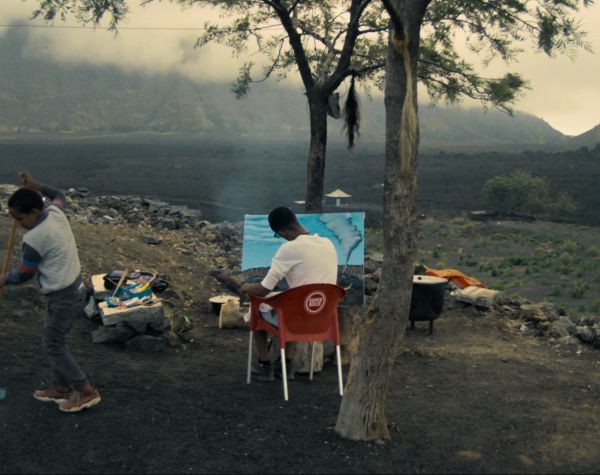
Apple Cider Vinegar
When documentary filmmaker Sophie Benoot had a kidney stone removed, she was astonished to discover that it contained a mineral found mainly in Antarctica. So she set out to find out how the foreign substance came to be in her body. It took the form of a playful polemic against the conventions of natural history documentaries. The narrator's voice, audible outside the picture, accompanies us during expeditions to different parts of the world, during which new layers of rocks and our history are uncovered. A wide-ranging reflection on the interconnectedness of the human and non-human shows that the ability to appreciate the wonders of the universe is perhaps more important than solving all mysteries. “I thought portraying our relation with stone could be a way to address certain ecological questions. Stone symbolizes a certain tradition of relating to nature that I inherited as well, living in the European West.” — Sofie Benoot
director: Sofie Benoot
original title: Apple Cider Vinegar
country: Belgium, Netherlands
year: 2024
running time: 80 min.
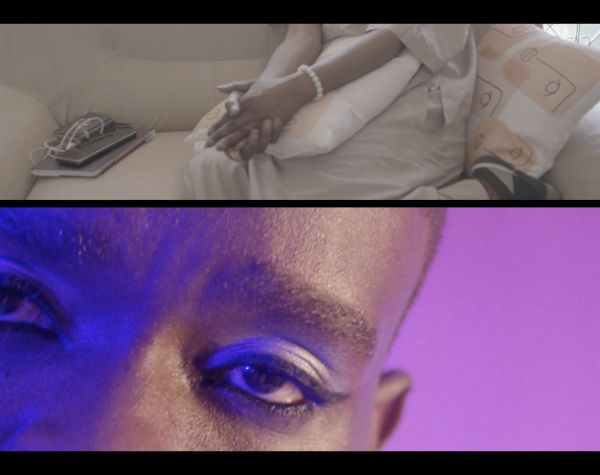
Call Me Uncle
When Tanzanian queer musician Tofa Jaxx discovered a brochure on AIDS in 2004, he decided to contact trans activist Aunty Ali, who knew from a young age that she was different from others. In a frank, extremely personal conversation, she then confides about her coming out, her love for men, or her experiences with prostitution and HIV.“Tanzanian customs and traditions do not acknowledge homosexuality, nor do they want to. They are contradictory and cold hearted because they are the ones who birthed us.” — Aunty Ali
director: Amil Shivji
original title: Niite Mjomba
country: Tanzania
year: 2023
running time: 10 min.
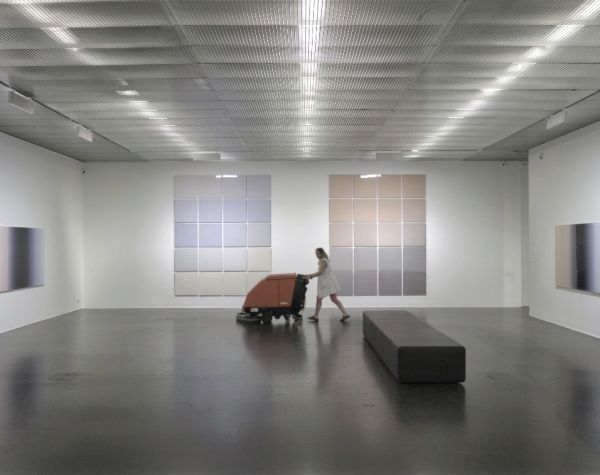
Cleaning & Cleansing
Static shots, mostly long and extreme long shots, and not much seems to happen in them. As if someone often turned the camera on only after the important thing had already been done – in moments when cleaning crews and almost always invisible women with dusters, mops and buckets arrive. When is it necessary to prepare everything for the next round of operation and use under conditions that we have come to perceive as healthy. The minimalist observational documentary lets us glimpse the different forms of how human culture gets rid of dirt and other deposits. Starting with hand washing in healthcare, through various manifestations of mental hygiene and sacred rituals, to cleaning in Holocaust memorials, it is always the same cyclical process. It is the necessity and self-evident nature of the actions accompanying purification that make them a social force of fundamental importance. Above the associative sequence of slow images of cleaned places and washed people, we can reflect on the symbolic and pragmatic meanings of everyday rituals, without which our civilization would collapse.“In my opinion, the current effort is mainly to achieve efficiency and productivity in the neoliberal sense of the word. After that, however, any colour and variety disappears.”Quote source: International Film Festival Bratislava
director: Thomas Fürhapter
original title: Cleaning & Cleansing
country: Austria
year: 2024
running time: 91 min.
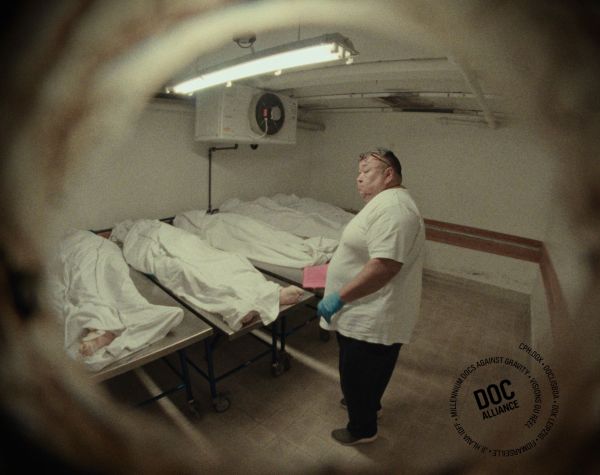
Finale
The moments immediately following a person's death are among the most intimate, accompanied by a sense of loneliness and emotional turmoil. The already soulless body is transported to the morgue in the hospital. The chapel is ready for the final farewell. The pallbearers arrive. Family members survey the preparations. The parish priest prepares his eulogy. Behind the imaginary curtain of secrecy, the film director lets us peek through an imitation voyeur's peephole placed in front of the camera lens. What is for one the finale of a life’s journey may be for another a sequence of repeated actions with no discernible end in sight.“I like to explore things that feel ambivalent, subjects that challenge my own moral codes and references, and trigger an almost physical reaction.”Source: https://nordiskfilmogtvfond.com/news/stories/2023-nordic-talents-to-watch
director: Marlene Lyngstad
original title: Finale
country: Denmark
year: 2024
running time: 21 min.
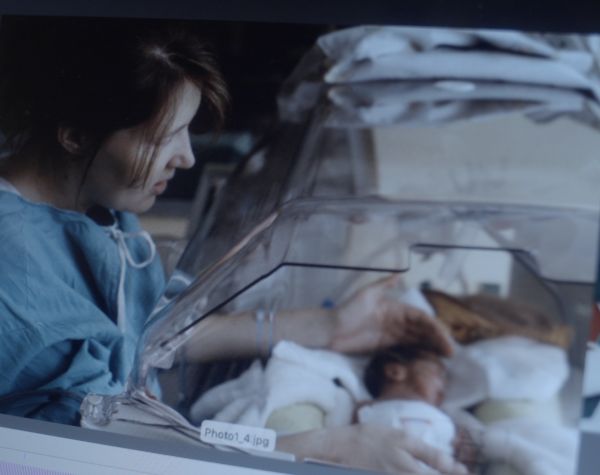
Grey Zone
Some doctors refer to the situation of babies born long before term as a grey zone. At 24 weeks, the fetus is not yet legally perceived as a full human being and the pregnancy can be terminated prematurely. This introspective documentary puts us in the position of a mother inextricably linked to her child who, directly from birth, is given only slim chances of survival by the doctors. The film's tribute to mothers and families of premature babies stands out for the harrowing yet disarming honesty with which the director speaks of her own feelings of fear, humiliation, hopelessness, and hope as her son makes further progress. “Through the intimate confession of a mother, the documentary portrays the often traumatic reality of premature birth, the special care for a premature newborn or later a child with special needs or disabilities.” Source quote: Film profile at AVF
director: Daniela Meressa Rusnoková
original title: Šedá zóna
country: Slovakia
year: 2024
running time: 75 min.
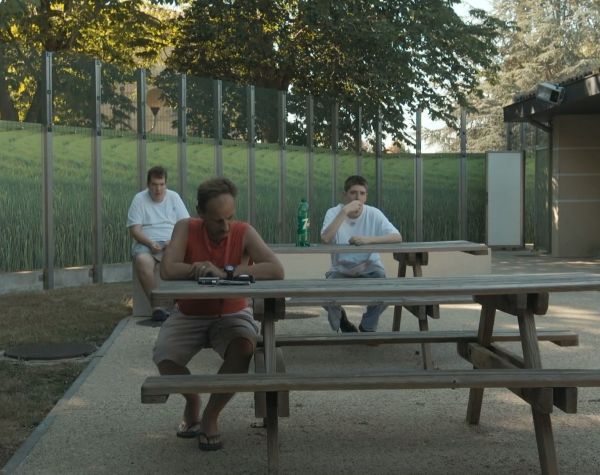
I'm Not With You
The closed ward of the psychiatric hospital in the city of Cadillac is intended for people who, due to mental illness, are a danger to themselves or those around them. Some wound up there voluntarily, some against their will. The film crew spent one month behind the walls of the institution. The idea was to adapt to its rhythm and disrupt the daily routine as little as possible. The protagonists of the film – Théo, Lucie, Louisette, Hervé or Benjamin – are therefore filmed in long, stationary shots, whether they conduct dialogues and monologues about their dreams and troubles or just smoke cigarettes in the garden. The more time we spend with them, the less we consider the environment they are in and begin to perceive them as dispassionately as the camera does. Not as patients with a diagnosis, but as people with a rich inner life and great imagination who yearn for closeness and understanding. The wall separating the normal from the abnormal thins and the film about institutional care becomes a reflection on the ability to co-exist despite differences.
director: Marie-Violaine Brincard, Olivier Dury
original title: Je ne suis pas avec vous
country: France
year: 2024
running time: 75 min.
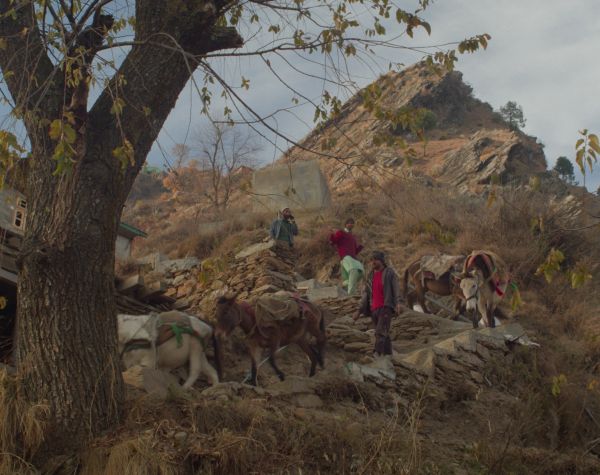
Only if the Baby Cries...
The hearing-disabled village of Dhadkai at the foothills of the Himalayas has been perplexing experts. It is not clear why only people with disabilities are born here. Yet locals drum and whistle to see if a newborn can hear and produce sound. This sensory-saturated observational portrait of a community amidst a majestic landscape raises the question of whether we need words to connect to the world around us.“According to the village´s beliefs and experiences, if the newborn cries loudly but keeps its eyes closed for the first two days, it might be deaf.”
director: Shadab Farooq
original title: Only if the Baby Cries...
country: India
year: 2024
running time: 14 min.
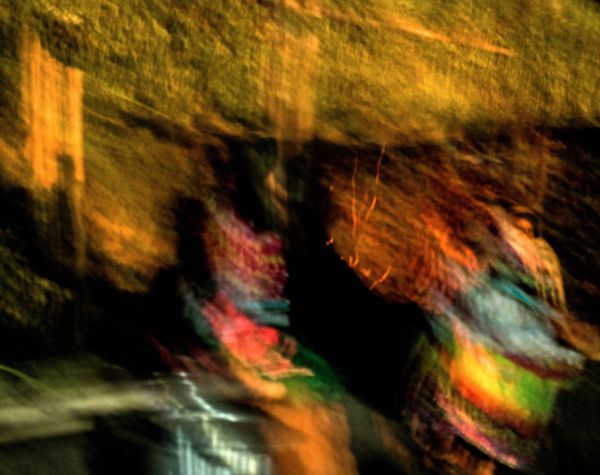
Sorrow
Diego Revollo first had to go deaf to learn to listen. According to conventional medicine, the director's deafness was incurable until he met Ortiz Ramos, a Bolivian healer from the Kallawaya shamanic nation. According to their teachings, which are part of a UNESCO World Heritage Site, urbanisation has severed man's connection with place, resulting in a rift between body and soul. Civilisation is sick and can only be cured by reconnecting with nature. The intoxicating details of the structures, the contemplatively ethnographic cinematography and the atmospheric soundtrack therapeutically return to matter, shapes, touch and the senses and restore the connection to our animal origins.“Perhaps for humans, healing is more akin to the ability to understand than to regenerate. To understand is to discover the deep meaning of something, to embrace it from all sides.”
director: Diego Revollo
original title: Llaki
country: Bolivia
year: 2023
running time: 72 min.
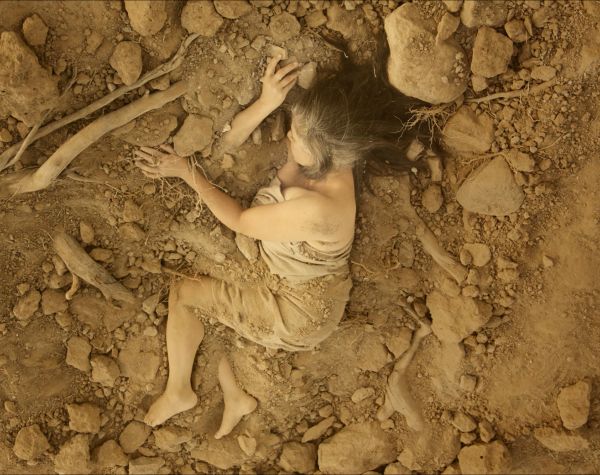
The Unfixing
A lyrical tapestry of life and landscape, The Unfixing reveals one mother’s path from illness to healing and from climate despair to environmental awakening. American filmmaker Nicole Betancourt fell ill in 2014. For a long time, she did not know the cause of the disease affecting her body and mind. But she could not devote herself properly to her work or raising two children. The stress, uncertainty and isolation made her stop and reflect. She began to perceive the health problems of herself and her loved ones in the context of the destruction of the entire planet. Her journey to the roots of personal and global grief takes the form of a layered collage in which themes and visual styles alternate cyclically. Through an intimate diary, animation, archival family films or interviews with doctors, indigenous teachers, and systems thinkers she looks for parallels between her own life and the landscape and finds hope at the intersection of both.“I hope that this film offers another way to face the sickness in our bodies and the earth, a path of allowing, listening, receiving – all things I thought were passive. Now I know they are active, courageous, and acts of rebellion.” — Nicole BetancourtSource: The Unfixing
director: Nicole Betancourt
original title: The Unfixing
country: United States, Spain
year: 2024
running time: 86 min.










